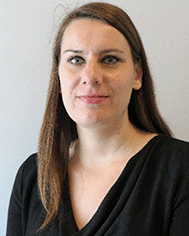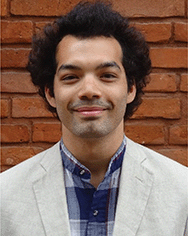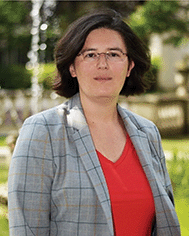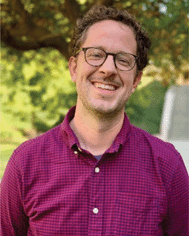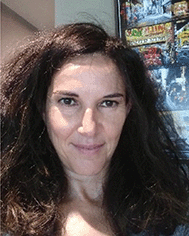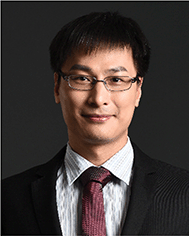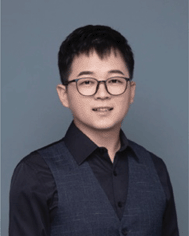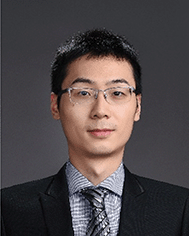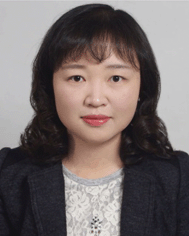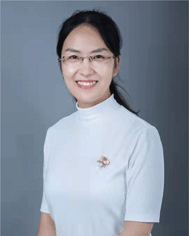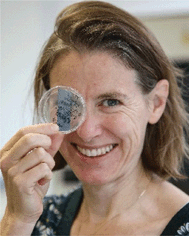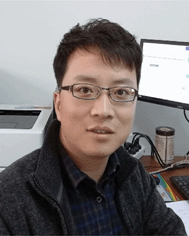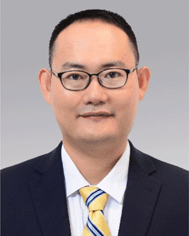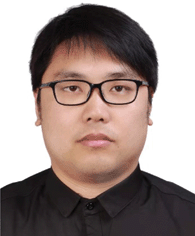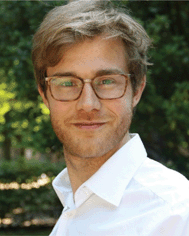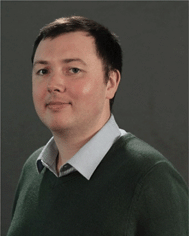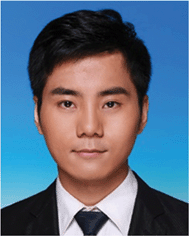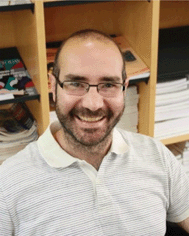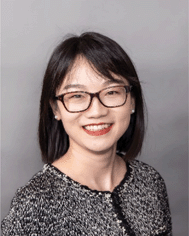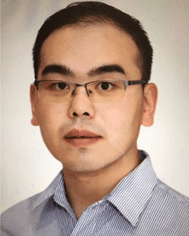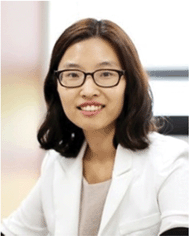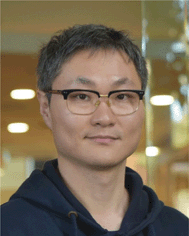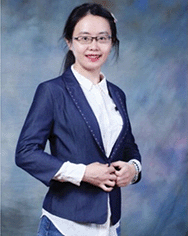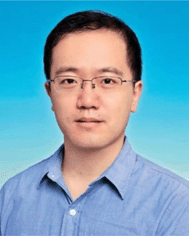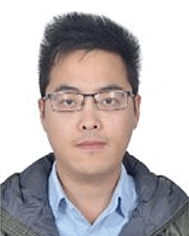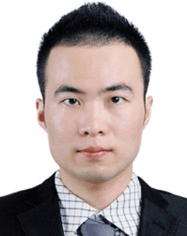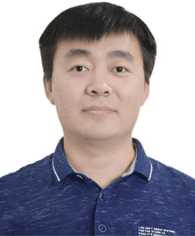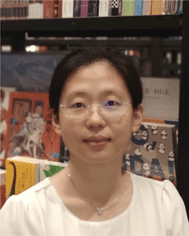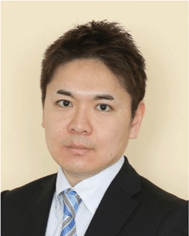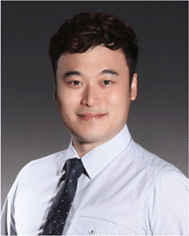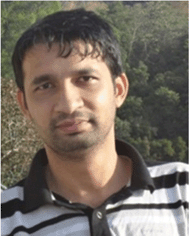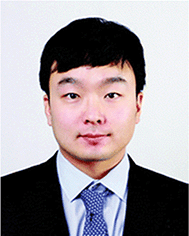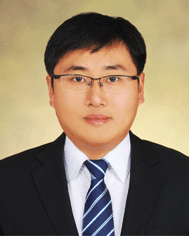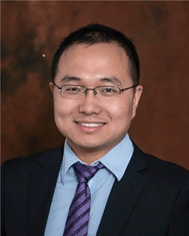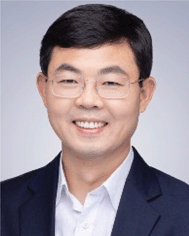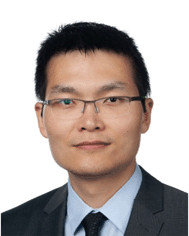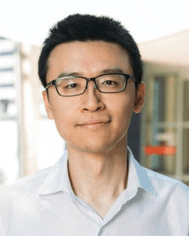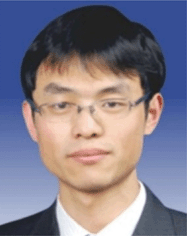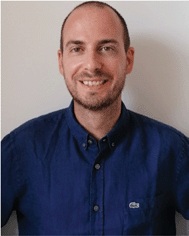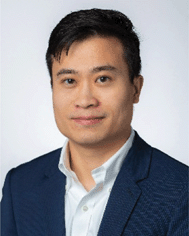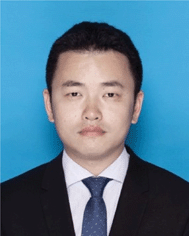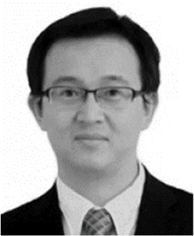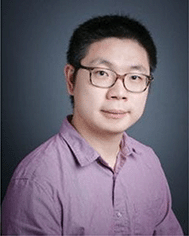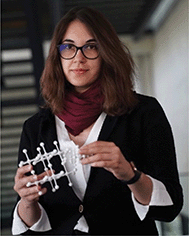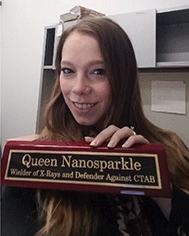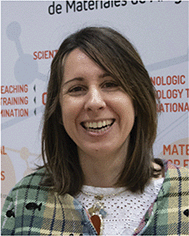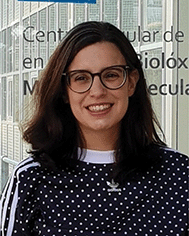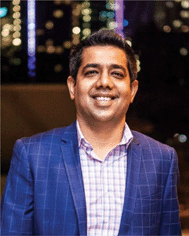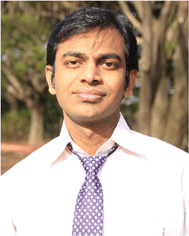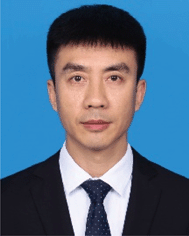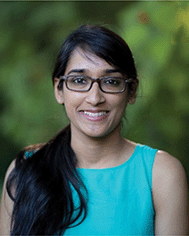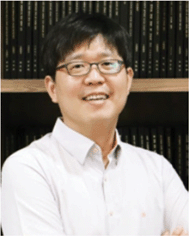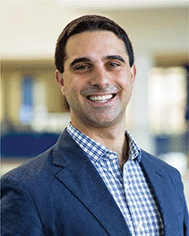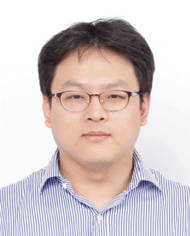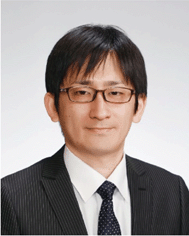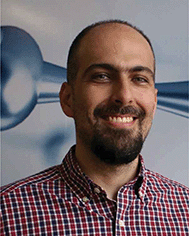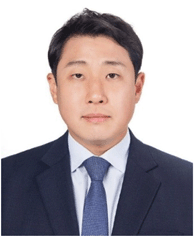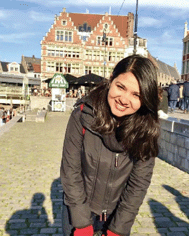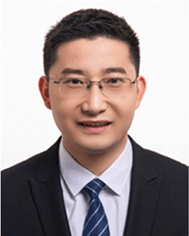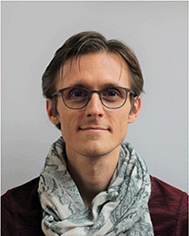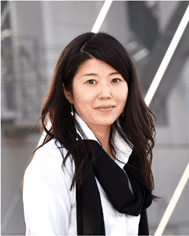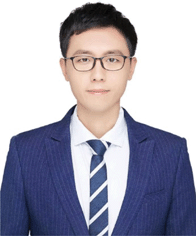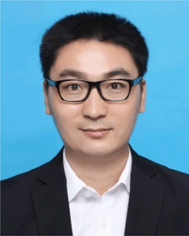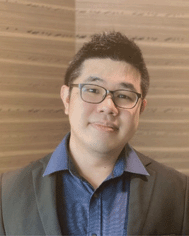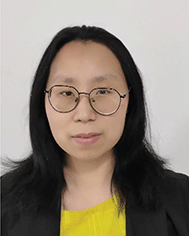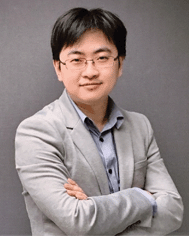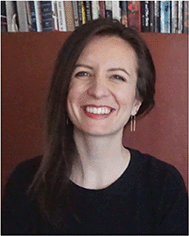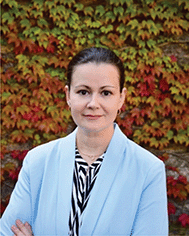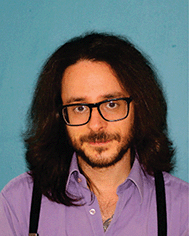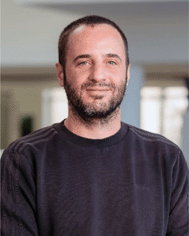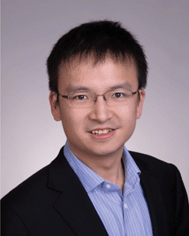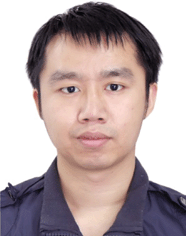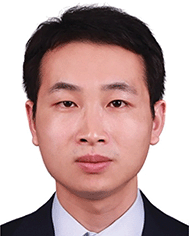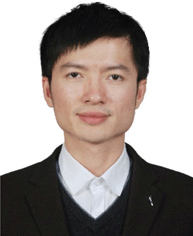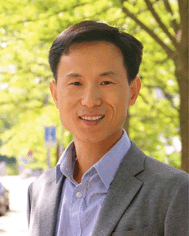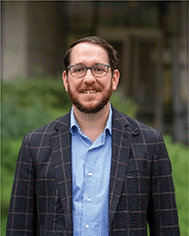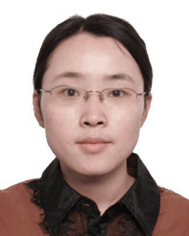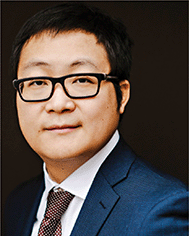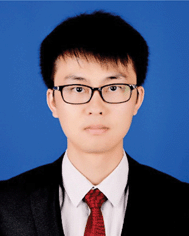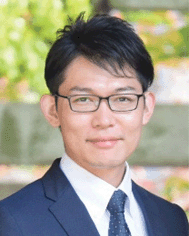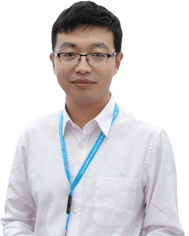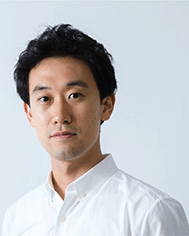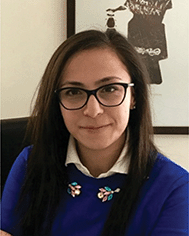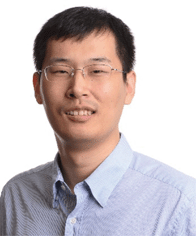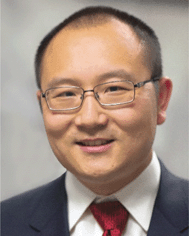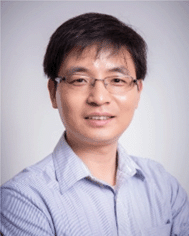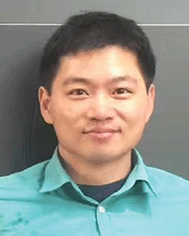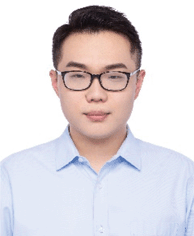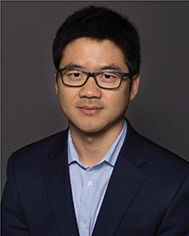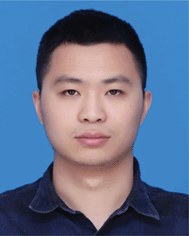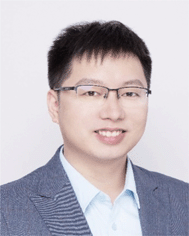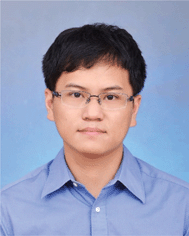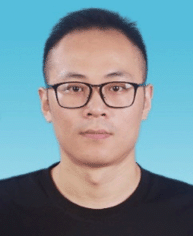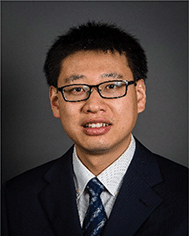DOI:
10.1039/D2NR90091B
(Profile)
Nanoscale, 2022,
14, 8562-8585
Nanoscale profiles: contributors to the Emerging Investigators 2022 issue
Dr Wiebke Albrecht is the group leader of the Hybrid Nanosystems Group at NWO-Institute AMOLF in Amsterdam. She received her PhD in physics from Utrecht University in 2017. Afterwards she worked as a postdoctoral researcher at the University of Antwerp and Leiden University. In 2018, she was awarded with a Marie-Curie fellowship and in 2021 she won the Minerva prize for her research activities. Her research is focused on heat and laser-induced transformations of anisotropic metal nanoparticles and the correlation of optical and structural properties at the single-nanoparticle level by combining single-particle optical spectroscopy and electron microscopy techniques.
Her contribution to the 2022 Nanoscale Emerging Investigators collection can be read at https://doi.org/10.1039/D1NR08130F
Dr Dhiraj Bhatia obtained his PhD in DNA nanotechnology from NCBS-TIFR in Bangalore, India. Post PhD he went to the Curie Institute in Paris to join the team of Ludger Johannes, initially as a Curie fellow and later as a HFSP long-term fellow, where he learnt the cellular and biological applications of DNA nanodevices. In 2018, he moved to India to start his own laboratory at the Indian Institute of Technology, Gandhinagar where he is an assistant professor and Ramanujan fellow. His lab focuses on the translational aspects of DNA nanotechnology to develop tools to program biological systems for biomedical applications.
His contribution to the 2022 Nanoscale Emerging Investigators collection can be read at https://doi.org/10.1039/D1NR07187D
Dr Job Boekhoven is developing tools to regulate the self-assembly of molecules in the same way biological systems do. He is best known for his work on chemically fuelled reaction cycles that control the ability of molecules to assemble or phase separate. The resulting materials show exciting new properties, such as their intrinsic ability to self-heal or their controllable lifetime. Moreover, the chemically fuelled assemblies manifest features we usually associate with living cells, like the ability to emerge, decay, or even self-divide. He holds a PhD (2012) from Delft University of Technology and is currently an assistant professor at the Technical University of Munich.
His contribution to the 2022 Nanoscale Emerging Investigators collection can be read at https://doi.org/10.1039/D1NR04954B
Dr William J. Bowman is an assistant professor of materials science and engineering at the University of California, Irvine. His lab focuses on understanding and developing oxide ceramics and nanomaterials for electrochemical energy conversion and storage, and CO
2 capture, and performs material synthesis, property testing, and multiscale characterization, primarily using electron microscopy. His research has been funded by the National Science Foundation, the American Chemical Society, and the Research Corporation for Science Advancement. He has received the NSF CAREER award, the NSF Graduate Research Fellowship, the Swiss Government Excellence Scholarship, and the Microscopy Society of America Presidential Scholar Award.
His contribution to the 2022 Nanoscale Emerging Investigators collection can be read at https://doi.org/10.1039/D1NR06121F
Dr Sophie Carenco obtained her PhD in 2011 from the University Pierre & Marie Curie, Paris. From 2012 to 2013, she was a postdoctoral fellow at Lawrence Berkeley National Lab. In 2014, she joined CNRS as a researcher at the Laboratoire de Chimie de la Matière Condensée de Paris at Sorbonne Université. She works on novel synthetic routes for nanoparticles and their applications. In 2017, she was awarded an ERC Starting Grant to work on small molecule activation at the surface of nanoparticles. She was awarded the Bronze Medal of CNRS (2018), the Clara Immerwahr Award (2020) and the Researcher Award from the Solid State Chemistry division of the French Chemical Society (2021).
Her contribution to the 2022 Nanoscale Emerging Investigators collection can be read at https://doi.org/10.1039/D2NR00917J
Dr Randy Carney is an assistant professor of biomedical engineering at the University of California, Davis. He received his BS in chemistry in 2008 from the University of Arkansas, MS from MIT in 2010, and PhD in materials science and engineering from EPFL in 2013. He continued his studies as a postdoctoral fellow at UC Davis focusing on soft nanomaterials, especially exosomes and related extracellular vesicles (EVs). He now leads a young and diverse group of engineers to build platforms that examine the use of EVs as next-generation cancer biomarkers and therapeutics.
His contribution to the 2022 Nanoscale Emerging Investigators collection can be read at https://doi.org/10.1039/D1NR03334D
Dr Francesca Cavalieri received her Laurea degree, ‘maxima
cum laude’, in industrial chemistry from the University of Rome La Sapienza. She completed her PhD in chemistry (2014) at the University of Melbourne. Since 2002, she has been a tenured assistant professor in the physical chemistry of macromolecules at the University of Rome ‘Tor Vergata’ Italy. In 2015, she was awarded the ARC Future Fellowship at the University of Melbourne and in 2019 she moved to RMIT University as Vice Chancellor Senior Research Fellow. Her research focuses on the engineering and characterization of nanostructured biopolymers for drug/gene delivery.
Her contribution to the 2022 Nanoscale Emerging Investigators collection can be read at https://doi.org/10.1039/D1NR08429A
Dr Huanjun Chen obtained his PhD in physics from the Chinese University of Hong Kong in 2010, and did postdoctoral research there from 2010 to 2012. From January 2012, he joined the School of Physical Science and Engineering at Sun Yat-sen University as an associate professor. Currently he is a full professor in the School of Electronics and Information Technology. He focuses on the research of low-dimensional polaritonic materials and their optoelectronic devices. In the past five years, his research activities have focused on polaritonic two-dimensional atomic crystals and their application in terahertz and mid-infrared detection.
His contribution to the 2022 Nanoscale Emerging Investigators collection can be read at https://doi.org/10.1039/D1NR05065F
Dr Jinxing Chen received his BS in polymer materials and engineering from the University of Jinan in 2013, and PhD in chemistry from the University of Science and Technology of China in 2018 under the supervision of Prof. Xuewu Ge. After working as a postdoctoral fellow at the University of California, Riverside, under the supervision of Prof. Yadong Yin, he joined the faculty at the Institute of Functional Nano & Soft Materials, Soochow University (2021). His research interests cover mainly nanomaterials for sustainability, including solar energy harvesting, plastic upcycling, and heterogeneous catalysis.
His contribution to the 2022 Nanoscale Emerging Investigators collection can be read at https://doi.org/10.1039/D1NR06410J
Dr Xihan Chen is an assistant professor at the Department of Mechanical and Energy Engineering, Southern University of Science and Technology. He received his bachelor's degree in chemistry from the Hong Kong University of Science and Technology (HKUST) in 2012 and PhD in chemistry at the University of California at Berkeley (UCB) in 2017. His research focuses on developing ultrafast spectroscopy for energy conversion systems including solar to electricity conversion and solar to fuel conversion. He has published over 40 peer-reviewed journal articles in international journals including
Science,
Nature Catalysis,
ACS Energy Letters,
Journal of the American Chemical Society etc.
His contribution to the 2022 Nanoscale Emerging Investigators collection can be read at https://doi.org/10.1039/D1NR05474K
Dr Eun Seon Cho is an associate professor of chemical and biomolecular engineering at Korea Advanced Institute of Science and Technology (KAIST). She received her PhD in materials science and engineering in 2013 from Massachusetts Institute of Technology (MIT) and worked as a postdoctoral researcher at Lawrence Berkeley National Laboratory (LBNL) from 2013 to 2017. Her major research interests lie in the design and synthesis of functional hybrid nanomaterials for energy and environmental applications. Her current research focuses on the development of nanostructured solid-state hydrogen storage materials, ranging from metal hydrides to porous frameworks.
Her contribution to the 2022 Nanoscale Emerging Investigators collection can be read at https://doi.org/10.1039/D1NR04335H
Dr Yunqian Dai was born in Longchang, Sichuan. She received her PhD from Southeast University in 2011 under Prof. Yueming Sun. She spent two years in Prof. Xia's group as a visiting graduate student from 2008–2010. She has been a full professor at Southeast University in the School of Chemistry and Chemical Engineering since 2019. Her current research interests include electrospun nanofibers and their applications in catalysis, environmental science, and energy technology.
Her contribution to the 2022 Nanoscale Emerging Investigators collection can be read at https://doi.org/10.1039/D1NR06582C
Dr Benjamin T. Diroll received his PhD in chemistry from the University of Pennsylvania (2015). Subsequently, he became a Director's Postdoctoral Fellow and then a scientific staff member at the Center for Nanoscale Materials at Argonne National Laboratory. His research interests include synthesis, self-assembly, optical properties, and device physics of nanomaterials.
His contribution to the 2022 Nanoscale Emerging Investigators collection can be read at https://doi.org/10.1039/D1NR06203D
Dr Glenna L. Drisko is a CNRS researcher at the Institut de Chimie de la Matière Condensée de Bordeaux (ICMCB), with core interests in (nano)particle synthesis and assembly into 2D and 3D materials. She focuses on (nano)particles with a high refractive index and their interaction with light. Her recent European Research Council funding for ‘Scatter’ aims to synthesize silicon particles of complex shape and composition for unprecedented light manipulation. She obtained her PhD from the University of Melbourne and was a postdoctoral fellow at LCMCP (Paris) and LCC (Toulouse). She is the recipient of a L'Oreal/UNESCO for Women in Science Award.
Her contribution to the 2022 Nanoscale Emerging Investigators collection can be read at https://doi.org/10.1039/D1NR07814C
Dr Pengfei Duan received his PhD in chemistry from the Institute of Chemistry, the Chinese Academy of Sciences (China). He worked as a postdoctoral research fellow and assistant professor at Kyushu University (Japan) from 2011 to 2015. At the end of 2015, he joined the National Center for Nanoscience and Technology (NCNST) as a full professor. His research concerns chiral nanomaterials, supramolecular chemistry, photochemistry and physics.
His contribution to the 2022 Nanoscale Emerging Investigators collection can be read at https://doi.org/10.1039/D1NR07069J
Dr Feng Ru Fan is currently an associate professor of chemistry at Xiamen University. He received his BS (2006) and PhD (2013) in physical chemistry from Xiamen University under the joint supervision of Prof. Zhongqun Tian and Prof. Zhong Lin Wang. He worked as a postdoctoral research associate in Prof. Galen Stucky's group from 2016 to 2019 at the University of California, Santa Barbara, and in Prof. Wenzhuo Wu's group from 2019–2020 at Purdue University. His current research interests focus on energy harvesting and conversion, triboelectric nanogenerators and self-powered systems, flexible electronics, electrocatalysis, and droplet chemistry.
His contribution to the 2022 Nanoscale Emerging Investigators collection can be read at https://doi.org/10.1039/D1NR05386H
Dr Yuanxing Fang went to the University of Sussex, United Kingdom, to study chemistry, and obtained his MChem degree in 2012 and PhD in 2017. He went to the State Key Laboratory of Photocatalysis on Energy and Environment at Fuzhou University, P. R. China, as a postdoctoral fellow in 2017. In 2019, he was appointed as an associated professor at the College of Chemistry, Fuzhou University, and promoted to special professor in 2021. His longstanding interests include the development of photocatalytic and photoelectrochemical devices for energy and environmental applications, such as water splitting, CO
2 reduction, organosynthesis and others. He has published more than 45 peer-reviewed publications, which have garnered more than 2000 citations and an H-index of 21.
His contribution to the 2022 Nanoscale Emerging Investigators collection can be read at https://doi.org/10.1039/D1NR04812K
Dr Marco Faustini was trained as a materials engineer at the University of Trento (Italy) and Aalto University (Finland). He obtained his PhD at the Université Pierre et Marie Curie (France) working on the self-assembly of sol–gel based magnetic nanomaterials for data storage. He then carried out a postdoctoral stay at POSTECH (South Korea) working on the microfluidic synthesis of MOFs. Since 2012, he has served as an associate professor at Sorbonne University (Paris). His research interests lie in the field of the synthesis and processing of porous materials by colloidal self-assembly and nanolithography, with main applications in the field of electrocatalysis and photonics.
His contribution to the 2022 Nanoscale Emerging Investigators collection can be read at https://doi.org/10.1039/D1NR07455E
Dr Calum Ferguson undertook an integrated Masters in chemistry at the University of Edinburgh. He then attained his PhD from the University of Leeds, UK, in 2018. After the completion of his doctoral studies, he joined the department of Physical Chemistry of Polymers at the Max Planck Institute for Polymer Research (MPIP), working with Prof. Katharina Landfester. In early 2020, he started as a research group leader at MPIP. His research interests include controlled radical polymer synthesis, photocatalytic classical polymers, organic small molecule photocatalysts, and the formation of bio-mimicking polymers and colloids.
His contribution to the 2022 Nanoscale Emerging Investigators collection can be read at https://doi.org/10.1039/D1NR06985C
Dr Chao Gao received his BS in chemistry in 2010 from the Anhui Normal University, and his PhD in inorganic chemistry in 2015 (with Prof. Xingjiu Huang and Prof. Zhiyong Tang) from the University of Science and Technology of China (USTC). During his PhD research, he had two years of training (2013–2015) with Prof. Zhiyong Tang at the National Center for Nanoscience and Technology (NCNST). He is currently an associate professor in Prof. Yujie Xiong's research team at the USTC. His current research interests are focused on the design and synthesis of photocatalysts, photoelectrodes and semi-artificial photosynthetic biohybrids for carbon dioxide reduction and methane conversion. He has published more than 40 scientific papers with over 4600 total citations (H-index 29). He was selected as a member of the Youth Innovation Promotion Association CAS in 2021.
His contribution to the 2022 Nanoscale Emerging Investigators collection can be read at https://doi.org/10.1039/D1NR06545A
Dr Marco Gobbi is a research fellow at CIC nanoGUNE, where he has worked as the “La Caixa” junior leader since September 2019. Additionally, he holds an Ikerbasque Fellowship at CIC nanoGUNE and at the Materials Physics Center, in San Sebastian. Before taking up this tenure track position, he was a Marie Curie Fellow at the Materials Physics Center, which he joined in 2017 after a 4-year postdoctoral contract at the Institute of Supramolecular Science and Engineering in Strasbourg (France). His research interests focus on engineering the physical properties of 2D materials using molecular functionalization for electronic and spintronic applications.
His contribution to the 2022 Nanoscale Emerging Investigators collection can be read at https://doi.org/10.1039/D1NR07281A
Dr Zi (Sophia) Gu is a group leader of the NanoBiotechnology Research Laboratory and a senior lecturer at the School of Chemical Engineering, University of New South Wales (UNSW). Prior to joining UNSW, she was a NHMRC Peter Doherty Biomedical EC Fellow after obtaining her PhD from the University of Queensland. Her research interests are on the development of smart biomaterials, optimised drug delivery strategies, and advanced nanobiotechnology for better diagnosis and treatment of diseases.
Her contribution to the 2022 Nanoscale Emerging Investigators collection can be read at https://doi.org/10.1039/D1NR04104E
Dr Feng Guo is currently an assistant professor of Intelligent Systems Engineering at Indiana University Bloomington. He received his BS in physics from Wuhan University (2007), his PhD in engineering science and mechanics from Penn State (2015), and his Dean Postdoctoral Fellowship training at Stanford School of Medicine (2017). He is a recipient of the NIH Director's New Innovator Award, the Outstanding Junior Faculty Award at Indiana University, the Luddy Faculty Fellow at Indiana University,
etc. His current research interests focus on the development of intelligent biomedical devices, sensors, and systems for translational medicine.
His contribution to the 2022 Nanoscale Emerging Investigators collection can be read at https://doi.org/10.1039/D1NR04015D
Dr Seonki Hong received her PhD in chemistry from KAIST in 2015 and worked as a postdoctoral fellow at the Center for Systems Biology at Massachusetts General Hospital from 2015 to 2017. Starting in June 2017, she joined the Department of Emerging Materials Science at DGIST as an assistant professor. Her research interests mainly focus on the development of nature-inspired catecholic and polyphenolic materials for biomedical applications.
Her contribution to the 2022 Nanoscale Emerging Investigators collection can be read at https://doi.org/10.1039/D1NR06237A
Dr Jingwei Hou earned his PhD in 2015 from the University of New South Wales. He then did postdoctoral research at the UNESCO Centre for Membrane Science and Technology (2015–2017) and the University of Cambridge (affiliate of the Trinity College, 2017–2019). He joined the University of Queensland in 2019 as an ARC DECRA Fellow, and in 2021 he was named an ARC Future Fellow. Aside from his primary research interests in membrane separation, metal–organic frameworks, and biocatalysis, he enjoys hiking, videography, jogging, and playing the piano.
His contribution to the 2022 Nanoscale Emerging Investigators collection can be read at https://doi.org/10.1039/D1NR08377E
Dr Shu-Xian Hu received her PhD in theoretical chemistry from the Chinese Academy of Sciences (China) in 2013. She has conducted Postdoc and visiting-scholar research in Prof. Laura Gagliardi's group, Prof. Jun Li's group, Prof. Steve Liddle's group and in Prof. Frank Neese's group successively. She moved to the Department of Physics as a professor at the University of Science and Technology, Beijing, in August 2019. Her research is in the field of computational chemistry, with the main focus on the structure and electronic properties of lanthanide/actinide compounds. She currently has published 60 articles in internationally peer-reviewed journals.
Her contribution to the 2022 Nanoscale Emerging Investigators collection can be read at https://doi.org/10.1039/D1NR03408A
Dr Chen Huang received his BS (in 2007) and PhD (in 2013) from Donghua University, China. Currently he is an associate professor at the College of Textiles, Donghua University. His research interests include functional nonwoven, fibrous materials and biomedical textiles. He has published more than 100 papers and has authored more than 20 Chinese patents.
His contribution to the 2022 Nanoscale Emerging Investigators collection can be read at https://doi.org/10.1039/D1NR06159C
Dr Haijian Huang was born in Hefei, China in 1991. He received his Bachelor's degree in science at Northwestern Polytechnical University in 2012 and continued at the same university to earn his Master's degree in engineering in 2015 under the supervision of Prof. Ying Huang. He then moved to Switzerland and concluded his PhD study at Eidgenössische Technische Hochschule Zürich (ETH Zürich) with a diploma in 2019 under the supervision of Prof. Markus Niederberger. From July to October 2019, he worked as a researcher at ETH Zürich. In 2020, he joined the School of Chemistry and Chemical Engineering at Hefei University of Technology (HFUT) as an associate professor. The focus of his current research is directed towards the micro-structural engineering of electrode materials for applications in advanced energy storage systems.
His contribution to the 2022 Nanoscale Emerging Investigators collection can be read at https://doi.org/10.1039/D1NR06746J
Dr Shuaidong Huo obtained his PhD from the National Center for Nanoscience and Technology of China in 2016 under the supervision of Prof. Xing-Jie Liang. After that, he worked as a postdoctoral researcher in Prof. Andreas Herrmann's team at the DWI-Leibniz Institute for Interactive Materials, Germany. In January 2020, he joined the School of Pharmaceutical Sciences, Xiamen University as a professor. His research topic focuses on taking advantage of nanotechnology to understand the biological effect of nanomaterials on living systems and develop activity-regulatable drug delivery systems for disease treatment.
His contribution to the 2022 Nanoscale Emerging Investigators collection can be read at https://doi.org/10.1039/D1NR05872J
Dr Henglei Jia received their PhD in materials science and engineering from the Chinese University of Hong Kong (CUHK) in 2016, followed by postdoctoral study at CUHK. In 2017, they joined the College of Chemistry, Chemical Engineering and Materials Science of Shandong Normal University as an assistant professor and were promoted to associate professor in 2019. Currently, their research interests focus on the design and controllable synthesis of colloidal noble metal nanocrystals, metal/semiconductor hybrid nanostructures, 2D ultrathin alloy nanomaterials, and their performance in various catalytic and energy conversion applications.
Their contribution to the 2022 Nanoscale Emerging Investigators collection can be read at https://doi.org/10.1039/D1NR05801K
Dr Nina Jiang received her PhD in materials science and engineering in 2014 from the Chinese University of Hong Kong under the guidance of Prof. Jianfang Wang, and then worked as a postdoctoral researcher at the Chinese University of Hong Kong for one year. She has been an associate professor in the College of Chemical Engineering at Huaqiao University in Xiamen, China since 2016. Her current research interests include novel inorganic nanomaterials for biomedical applications and metal-conductive polymer hybrid nanostructures for active plasmonics.
Her contribution to the 2022 Nanoscale Emerging Investigators collection can be read at https://doi.org/10.1039/D1NR03246A
Dr Masao Kamimura received his ME (2009) and PhD (2012) under the supervision of Prof. Yukio Nagasaki, in materials science at the University of Tsukuba. He was an assistant professor at Tokyo University of Science until 2018, and then promoted to a junior associate professor and principle investigator at Tokyo University of Science. His research interests concern polymer biomaterials, fluorescence bioimaging, mechanobiology, and cell manipulation.
His contribution to the 2022 Nanoscale Emerging Investigators collection can be read at https://doi.org/10.1039/D1NR07242K
Dr Dokyoung Kim received his PhD from the Department of Chemistry at POSTECH (Pohang University of Science and Technology) in 2014. After a postdoctoral stay at the University of California, San Diego (2015–2017), he started his independent career at Kyung Hee University, College of Medicine, Seoul. He is interested in the biomedical applications of nanomaterials.
His contribution to the 2022 Nanoscale Emerging Investigators collection can be read at https://doi.org/10.1039/D1NR03263A
Dr Jatish Kumar obtained his PhD in chemistry from the CSIR-National Institute for Interdisciplinary Science and Technology (NIIST), Trivandrum, India. After completion of his PhD, he worked initially as a JSPS postdoctoral fellow and later as an assistant professor at the Nara Institute of Science and Technology (NAIST), Nara, Japan. Later he moved as a Marie Curie postdoctoral fellow to CIC biomaGUNE in San Sebastian, Spain. He joined the Indian Institute of Science Education and Research (IISER) Tirupati, India as an assistant professor in December 2018. His research interests are in the field of nanoscale chirality, photochemistry and the assembly of nanomaterials.
His contribution to the 2022 Nanoscale Emerging Investigators collection can be read at https://doi.org/10.1039/D1NR08506A
Dr Dong Woog Lee received his BS in chemical and biomolecular engineering at the Korea Advanced Institute of Science and Technology (KAIST) in 2008, and his PhD in chemical engineering from the University of California, Santa Barbara (UCSB) in 2014 under the supervision of Prof. Jacob Israelachvili. He continued his work in the same lab for two more years as a postdoctoral researcher (2014–2016), and is currently an associate professor at Ulsan National Institute of Science and Technology (UNIST). His research focuses on studying the fundamental interaction forces between bio/biomimetic molecules (biomolecules, polymers, proteins, lipid membranes) using Surface Forces Apparatus, and applying them to valuable materials (polymer composites, adhesives, coatings, lubricants).
His contribution to the 2022 Nanoscale Emerging Investigators collection can be read at https://doi.org/10.1039/D1NR06076G
Dr Kiyoung Lee studied chemical engineering at Inha University, Korea and obtained his PhD from the University of Erlangen-Nuremberg, Germany in 2013. From 2013 to 2015 he worked at the University of Erlangen-Nuremberg, Germany, and the University of California, Riverside, US, as a postdoctoral researcher. From 2016 until 2021 he was an assistant and associate professor at the School of Nano & Materials Science and Engineering at Kyungpook National University, Korea. Since 2021, he has been an associate professor at the Department of Chemical Engineering, Inha University, Korea. His current research interests include functional nanomaterial synthesis by electrochemical methods and their use in energy conversion and storage devices.
His contribution to the 2022 Nanoscale Emerging Investigators collection can be read at https://doi.org/10.1039/D1NR04763A
Dr Ting Lei is an assistant professor in the Department of Materials Science & Engineering, Peking University. He received his BS and PhD from Peking University in 2008 and 2013, respectively. After postdoc training in Stanford, he joined Peking University in 2018. His current research focuses on organic/polymer functional materials, organic electronics, carbon-based electronics, and bioelectronics.
His contribution to the 2022 Nanoscale Emerging Investigators collection can be read at https://doi.org/10.1039/D1NR06635H
Dr Fei Liu is currently a principal investigator of biomedical engineering at Wenzhou Medical University. He obtained his PhD in chemical and biomolecular engineering from the Korea Advanced Institute of Science and Technology (2012), and received his postdoctoral training at the University of California at Berkeley, Houston Methodist Research Institute, and Stanford University School of Medicine (2013–2017). His current research focuses on exosome-based clinical diagnostics and translations.
His contribution to the 2022 Nanoscale Emerging Investigators collection can be read at https://doi.org/10.1039/D1NR04015D
Dr Nian Liu is an assistant professor at the School of Chemical and Biomolecular Engineering at Georgia Tech. He received his BS in 2009 from Fudan University, and PhD in 2014 from Stanford University, where he worked on the structural design of Si anodes for high-energy Li-ion batteries. From 2014 to 2016, he worked at Stanford University as a postdoc, where he developed
in situ optical microscopy to probe beam-sensitive battery reactions. Dr Liu's lab at Georgia Tech is broadly interested in the combination of nanomaterials, electrochemistry, and light microscopy for answering questions and providing solutions for global energy challenges.
His contribution to the 2022 Nanoscale Emerging Investigators collection can be read at https://doi.org/10.1039/D1NR07890A
Dr Porun Liu received his PhD in chemical science in 2011 from Griffith University. He subsequently worked as a research fellow at the Centre for Catalysis and Clean Energy (CCCE). He was awarded a Griffith University Postdoctoral Research Fellowship in 2015 and an Australian Research Council Discovery Early Career Researcher Award in 2017. He is currently an associate professor at the School of Environment and Science, focusing on synthesis,
in situ characterization and electrocatalytic applications of nanostructured catalysts in energy conversion and storage devices.
His contribution to the 2022 Nanoscale Emerging Investigators collection can be read at https://doi.org/10.1039/D1NR06285A
Dr Zhiyuan Liu is currently a professor at Shenzhen Institute of Advanced Technology, Chinese Academy of Sciences, China. He received his BS from Harbin Institute of Technology and was awarded his PhD in Materials Science and Engineering (MSE) in 2017 from Nanyang Technological University (NTU), Singapore. During that time, he worked with Prof. Xiaodong Chen in Singapore and Prof. Zhenan Bao at Stanford University. His research interests are related to soft and stretchable bio-interface sensors.
His contribution to the 2022 Nanoscale Emerging Investigators collection can be read at https://doi.org/10.1039/D1NR06244A
Dr Federico Locardi received is PhD in chemical science from the University of Genoa (Italy) in 2015. He started his postdoctoral studies at the University of Genoa and the Nanochemistry Department of IIT (Istituto Italiano di Tecnologia), focusing on the synthesis of halide perovskite nanocrystals. In 2019 he moved to the Physics and Chemistry of Nanostructures group at Gent University (Belgium); after one year, he moved back to the University of Genoa, where he is an assistant professor in the Department of Chemistry and Industrial Chemistry. His research focuses on the development of new inorganic (nano)materials for photocatalysis and optoelectronics.
His contribution to the 2022 Nanoscale Emerging Investigators collection can be read at https://doi.org/10.1039/D1NR06200J
Dr Haipeng Lu is an assistant professor in the Department of Chemistry at the Hong Kong University of Science and Technology (HKUST). His group works on developing inorganic chemistry approaches to address challenges related to renewable energy and sustainability. He received his BSc in chemistry from Nanjing University in 2012, and completed his PhD in 2017 in chemistry at the University of Southern California. He then moved to the National Renewable Energy Laboratory (NREL) as a postdoctoral fellow. He is a 2019 ACS Division of Physical Chemistry Young Investigator Awardee. His current research is focused on the molecular design of quantum-confined and chiral semiconductors for optoelectronic and spintronic applications.
His contribution to the 2022 Nanoscale Emerging Investigators collection can be read at https://doi.org/10.1039/D1NR06407J
Dr Shuanglong Lu received his BS and PhD from Soochow University in 2013 and 2018, respectively, under the supervision of Prof. Hongwei Gu. Meanwhile, he received financial support from the Chinese government to finish his joint PhD research at the University of Colorado at Boulder, US, in Prof. Wei Zhang's group. He then joined Jiangnan University, China, as an associate professor in 2018. His current research interests mainly focus on engineering nanoporous materials including nanoporous metals and nanoporous organic frameworks, and their application in both organic catalysis and electrocatalysis.
His contribution to the 2022 Nanoscale Emerging Investigators collection can be read at https://doi.org/10.1039/D1NR06197F
Dr Yuerui Lu is an associate professor in the College of Engineering and Computer Science at the Australian National University. He received his PhD from Cornell University, School of Electrical and Computer Engineering, in 2012. He holds a BS degree from the Department of Applied Physics at the University of Science and Technology of China. His research interests include MEMS/NEMS sensors and actuators, nano-manufacturing technologies, renewable energy harvesting, biomedical novel devices, nanomaterials, and nanoelectronics. He was the recipient of several awards, including the competitive ACT Young Tall Poppy of 2016, and the Media and Outreach Award from the Australian National University in 2015.
His contribution to the 2022 Nanoscale Emerging Investigators collection can be read at https://doi.org/10.1039/D1NR06598J
Dr Long Luo is currently an assistant professor in the Department of Chemistry at Wayne State University. He received his BS (2009) in applied chemistry from the Beijing University of Aeronautics and Astronautics and his PhD (2011–2014) in chemistry with Prof. Henry S. White from the University of Utah. Before joining Wayne State University in 2017, he worked as a postdoctoral fellow in the laboratory of Prof. Richard M. Crooks at the University of Texas at Austin. He received the National Science Foundation CAREER Award, NIH Maximizing Investigators’ Research Award (MIRA), and Wayne State University Academy of Scholars Junior Faculty Award and was selected as the Langmuir inaugural Early Career Advisory Board Member. His current research interests include developing electrochemical sensors, electrochemical synthesis of functional nanomaterials and organic drug molecules.
His contribution to the 2022 Nanoscale Emerging Investigators collection can be read at https://doi.org/10.1039/D1NR06615C
Dr Janet Macdonald received her BS (Honours) in chemistry from McGill University where she had her first whiff of organo-chalcogenide chemistry in the laboratory of Prof. David Harpp. Her PhD in nanocrystal synthesis was conducted under Prof. Jonathan Veinot at the University of Alberta, followed by postdoctoral research with Prof. Uri Banin at the Hebrew University of Jerusalem. She is currently an associate professor at Vanderbilt University. Her group is particularly interested in discovering transcendent principles for phase control in nanocrystal synthesis, but also tackles challenges in charge transfer phenomena from nanocrystals and nanostructures as pertains to solar energy capture.
Her contribution to the 2022 Nanoscale Emerging Investigators collection can be read at https://doi.org/10.1039/D1NR06282D
Dr Fabien Massabuau is currently a Chancellor's Fellow (lecturer) at the University of Strathclyde, where his group investigates the fabrication and characterisation of emerging wide-bandgap semiconductors for applications such as solar-blind photodetectors. He received his engineering Diploma from Ecole Centrale de Lyon (2011), MRes in materials science from Claude Bernard University Lyon 1 (2011), and PhD from the University of Cambridge (2015) on the nanostructure of InGaN/GaN quantum wells and their impact on light emitting diode performances. From 2015 to 2019, he was a postdoctoral researcher at the University of Cambridge, developing a multi-microscopy methodology to study defects in III-nitride semiconductors.
His contribution to the 2022 Nanoscale Emerging Investigators collection can be read at https://doi.org/10.1039/D1NR06088K
Dr Jovana V. Milić is an assistant professor at the Adolphe Merkle Institute at the University of Fribourg in Switzerland. Her research focuses on the development of (supra)molecular materials for energy conversion, with a particular interest in photovoltaics. She has been recognized by the Periodic Table of Younger Chemists and as a CAS Future Leader in 2019, Green Talent Award in 2020, and Zeno Karl Schindler Prize in 2021. She is involved in science outreach, policy and education, such as through the activities of the European Young Chemists’ Network and International Younger Chemists Network, connecting and supporting young scientists globally.
Her contribution to the 2022 Nanoscale Emerging Investigators collection can be read at https://doi.org/10.1039/D1NR08311B
Dr Liane Moreau leads a research group at the intersection of nanotechnology, X-ray characterization and radioactivity. She joined the chemistry faculty at Washington State University in 2020, after receiving her PhD in materials science and engineering from Northwestern University in 2017 and completing a postdoc in the heavy element chemistry group at Lawrence Berkeley National Laboratory. Her research interests involve pairing nanomaterial synthetic advances with comprehensive X-ray characterization, to better understand their structure/property relationships and surface chemistry attributes. A majority of her group's focus is on the development of actinide nanomaterials, determination of their size and surface-dependent properties, and the mechanisms that define their growth pathways.
Her contribution to the 2022 Nanoscale Emerging Investigators collection can be read at https://doi.org/10.1039/D1NR06231J
Dr María Moros is a Ramón y Cajal researcher at the Instituto de Nanociencia y Materiales de Aragón. Her research focuses on the synthesis and smart functionalization of nanoparticles to develop innovative biomedical applications with special interest in their interactions with cell cultures and invertebrate animals. She did her PhD in the field of nanomedicine and thanks to a Marie Curie fellowship she moved to Naples, where she specialized in the use of the invertebrate model
Hydra vulgaris to test nanoparticles. In 2019 her Sirocco project, where magnetic nanoparticles are used to stimulate regenerative pathways, received an ERC Starting Grant.
Her contribution to the 2022 Nanoscale Emerging Investigators collection can be read at https://doi.org/10.1039/D1NR06303K
Dr Beatriz Pelaz is currently an ERC-StG grantee, Ramón y Cajal researcher and Principal Investigator at the Center of Chemical Biology and Molecular Materials (CiQUS, University of Santiago de Compostela). She received her PhD from the University of Zaragoza (2012). Then, she was a postdoctoral fellow at the Philipp-Universität Marburg. Since 2017, she has co-led the BioNanoTools group in CiQUS. The research of her group is focused on the development of remotely controlled smart materials, and the study of their interaction with living entities.
Her contribution to the 2022 Nanoscale Emerging Investigators collection can be read at https://doi.org/10.1039/D1NR08305H
Dr Amirali Popat is an associate professor and director of research at the School of Pharmacy, at the University of Queensland, Australia. He obtained his PhD in nanomedicine from the Australian Institute for Bioengineering and Nanotechnology at the University of Queensland in 2012. His group's research focuses on the development of stimuli responsive nanomaterials to overcome multiple biological barriers for precision medicine, in particular the development of smart oral drug delivery systems for the treatment of IBD, diabetes and cancer. Currently (2020–2021) he is serving as a president of the Australian Controlled Release Society (AusCRS) and is an editorial board member on many prestigious journals such as the
Journal of Controlled Release,
Pharmaceutics,
DDTR and an early career advisory board member on
Nanoscale Horizons.
His contribution to the 2022 Nanoscale Emerging Investigators collection can be read at https://doi.org/10.1039/D1NR03553C
Dr Mahla Poudineh is an assistant professor and director of the IDEATION Lab in the Department of Electrical and Computer Engineering at the University of Waterloo. She received her PhD in electrical engineering from the University of Toronto in 2016. Prior to joining UWaterloo, she completed postdoctoral training at the University of Toronto, Department of Pharmaceutical Science and Stanford University, School of Medicine in 2017 and 2019, respectively. She received her BSc and MSc in electrical engineering, both from the University of Tehran, Iran in 2010 and 2012, respectively. Her research interests include developing bio-sensing approaches for therapeutics and diagnostics and translating biomedical devices to the clinic.
Her contribution to the 2022 Nanoscale Emerging Investigators collection can be read at https://doi.org/10.1039/D1NR08252C
Dr Seelam Prasanthkumar received his PhD in organic chemistry from CSIR-National Institute of Interdisciplinary Science and Technology (NIIST), Trivandrum, India in 2012. Afterwards, he joined the group of Prof. Takuzo Aida, RIKEN, Japan, as a postdoctoral fellow. Subsequently, he was selected for the DST-INSPIRE faculty award and joined the CSIR-Indian Institute of Chemical Technology (IICT), Hyderabad, India, as an INSPIRE faculty fellow. Currently, he is working as a scientist and assistant professor (AcSIR) in the Polymer & Functional Materials Division, CSIR-IICT, India. His research interests include developing stimuli responsive materials for sensors, solar cells and hydrogen production.
His contribution to the 2022 Nanoscale Emerging Investigators collection can be read at https://doi.org/10.1039/D1NR06961F
Dr Ferry Prins obtained a Masters in chemistry from Leiden University (2007) and a PhD in physics from Delft University of Technology (2011). After postdoctoral stays at MIT and ETH Zurich, he joined the Condensed Matter Physics Center at the Universidad Autonoma de Madrid as a tenure track group leader in 2017, where he now directs the Photonic Nanomaterials and Devices Lab. His group studies the optoelectronic properties of semiconductor nanomaterials, exploring new photonic strategies to control light–matter interactions and developing new techniques to directly visualize energy transport in these materials.
His contribution to the 2022 Nanoscale Emerging Investigators collection can be read at https://doi.org/10.1039/D1NR07136J
Dr Dianpeng Qi received his BS in chemistry in 2007 and PhD in physical chemistry in 2012 from Jilin University (China). From 2012 to 2018, he was a postdoctoral fellow at the School of Materials Science and Engineering, Nanyang Technological University, Singapore. He joined Harbin Institute of Technology in 2018, and is currently a full professor in the School of Chemistry and Chemical Engineering. His research is focused on flexible electronics for bio-electrophysiology, bio-medical electronics, bio-interfacial sensing and energy conversion.
His contribution to the 2022 Nanoscale Emerging Investigators collection can be read at https://doi.org/10.1039/D1NR07226A
Dr Xian Qin is a senior research fellow in the Department of Chemistry at the University of Singapore. She earned her BS degree (2007) in mechanical engineering from Sichuan University. She then received her PhD in 2013 from the Harbin Institute of Technology, P. R. China. She subsequently carried out postdoctoral training in the Chemistry Department at the National University of Singapore and also the Institute of Materials Research and Engineering (IMRE) at A*STAR, Singapore. Her current research is focused on molecular optoelectronics, energy conversion materials design, and nanocatalysis, as well as quantum and classical simulations for understanding photophysical processes of luminescent nanomaterials.
Her contribution to the 2022 Nanoscale Emerging Investigators collection can be read at https://doi.org/10.1039/D1NR06904G
Dr Archana Raja is a staff scientist at Lawrence Berkeley National Laboratory. Her research group is based at the Imaging and Manipulation of Nanostructures Facility at the Molecular Foundry, a nanoscale science research center based at Berkeley Lab. She received her PhD in chemical physics from Columbia University. After spending a year as a postdoctoral scholar in the Applied Physics Department at Stanford University, she joined the Kavli Energy and Nanoscience Institute at UC Berkeley as a Heising-Simons Junior Fellow. Her research focuses on manipulating potential landscapes in nanoscale quantum materials for the transport of energy, charge, and information.
Her contribution to the 2022 Nanoscale Emerging Investigators collection can be read at https://doi.org/10.1039/D1NR08082B
Dr Junsuk Rho is a Mu-Eun-Jae endowed chair associate professor with a joint appointment in the Department of Mechanical Engineering and the Department of Chemical Engineering at Pohang University of Science and Technology (POSTECH), Korea. He received his BS (2007) and MS (2008) in mechanical engineering at Seoul National University, Korea and the University of Illinois, Urbana-Champaign, respectively. After obtaining his PhD (2013) in mechanical engineering and nanoscale science & engineering from the University of California Berkeley, he worked as a postdoctoral fellow in the Materials Sciences Division at Lawrence Berkeley National Laboratory and a Ugo Fano Fellow in the Nanoscience and Technology Division at Argonne National Laboratory.
His contribution to the 2022 Nanoscale Emerging Investigators collection can be read at https://doi.org/10.1039/D1NR05805C
Dr Emilie Ringe earned her PhD in chemistry at Northwestern University, then became a Gott Research Fellow at Trinity Hall and a Newton International Research Fellow in materials science and metallurgy at the University of Cambridge. In 2014, she joined Rice University as an assistant professor and moved to the University of Cambridge in 2018. Her research interests include crystal growth and nanoscale control of light–matter interactions, with a specific focus on plasmonic, metallic nanoparticles. She is a fellow of Gonville & Caius College and an associate member of the Royal Society of Chemistry. She has received the 2021
Journal of Physical Chemistry C Lectureship and has been recognized by
C&EN as one of the 2021 ‘Talented 12’.
Her contribution to the 2022 Nanoscale Emerging Investigators collection can be read at https://doi.org/10.1039/D1NR06139A
Dr Jonathan De Roo studied chemistry at Ghent University and obtained his PhD on the surface chemistry of metal oxide nanocrystals in 2016. During his PhD, he also spent three months at ETH Zurich studying the surface of CsPbBr
3 nanocrystals. He completed a postdoc at Columbia University, working on crystallization mechanisms and the design of new ligands. In 2019, he joined the University of Basel as a tenure track assistant professor. His research team focuses on mechanistic aspects in the synthesis of ceramic nanocrystals and atomically precise oxo-clusters. Both precursor conversion and crystallization mechanisms are studied.
His contribution to the 2022 Nanoscale Emerging Investigators collection can be read at https://doi.org/10.1039/D1NR05092C
Dr Michael Ross is an assistant professor in the Chemistry Department at the University of Massachusetts Lowell. Before that, he was awarded a CIFAR Bio-Inspired Solar Energy Postdoctoral Fellowship working at the University of California, Berkeley. He earned his PhD in chemistry at Northwestern University as a National Defense Science and Engineering (NDSEG) Fellow and his BS in biochemistry at Providence College. His research interests focus on understanding the unique optical, chemical, and catalytic properties of metallic nanomaterials, and leveraging those properties to address challenges in energy, environmental detection, and photonics.
His contribution to the 2022 Nanoscale Emerging Investigators collection can be read at https://doi.org/10.1039/D1NR06049J
Dr Jungki Ryu is an associate professor at the UNIST School of Energy and Chemical Engineering. He received his BS and PhD in materials science and engineering from Yonsei University in 2006 and the Korea Advanced Institute of Science and Technology (KAIST) in 2011, respectively. Before joining UNIST in 2014, he studied bioinspired functional materials as a postdoctoral associate at the Massachusetts Institute of Technology for 3 years. His current research interests include electrocatalysis, solar fuel production, biomass utilization, and electrochemical waste refinery.
His contribution to the 2022 Nanoscale Emerging Investigators collection can be read at https://doi.org/10.1039/D1NR05901G
Dr Masaaki Sadakiyo is a junior associate professor at the Department of Applied Chemistry, Faculty of Science Division I, Tokyo University of Science. He received his PhD from Kyoto University in 2012 and became an assistant professor at Kyushu University later that year. He moved to the Tokyo University of Science in 2019. His research interests include the functionalities of metal–organic frameworks and related porous materials (
e.g. ionic conduction, catalysis).
His contribution to the 2022 Nanoscale Emerging Investigators collection can be read at https://doi.org/10.1039/D1NR07659K
Dr Murilo Santhiago is a researcher at the Brazilian Nanotechnology National Laboratory (LNNano), located in the Brazilian Center for Research in Energy and Materials (CNPEM) in Campinas, SP, Brazil. He received his PhD in chemistry from the University of Campinas (UNICAMP) in 2014. His current research interests are on flexible electrochemical nanodevices, paper-based devices, micro–nanofabrication and 2D materials with applications in energy, environmental, and health fields. One of his goals is to stimulate student's creativity to guide them to solve the relevant problems of our society by exploring the amazing field of nanotechnology.
His contribution to the 2022 Nanoscale Emerging Investigators collection can be read at https://doi.org/10.1039/D2NR00491G
Dr Dong Han Seo is currently appointed as an associate professor at the Korea Institute of Energy Technology (KENTECH). He completed his PhD at the University of Sydney in 2015 and was awarded an Australian Institute of Physics Best Postgraduate Award in 2014. In the same year, he obtained the prestigious OCE Postdoctoral Fellowship at CSIRO. Then he was promoted to research scientist in 2017. In 2020, he won the prestigious UTS Chancellor's research fellowship. His research focuses on nanomaterial synthesis using plasma and thermal processes and applying them in energy storage devices, and membranes for water purification.
His contribution to the 2022 Nanoscale Emerging Investigators collection can be read at https://doi.org/10.1039/D1NR06411H
Dr Shalini Singh is a lecturer in the Department of Chemical Sciences and the Bernal Institute at the University of Limerick, Ireland. She received her PhD in chemistry from the University of Limerick in 2016 and was then a FWO (Research Foundation, Flanders, Belgium) Postdoctoral Fellow at Ghent University, Belgium until 2019. From 2020, she has lead the Functional Nanomaterial Research Group at the University of Limerick. Her research interest is focused on the development of novel colloidal semiconductor and metallic nanocrystals for energy conversion and storage applications.
Her contribution to the 2022 Nanoscale Emerging Investigators collection can be read at https://doi.org/10.1039/D1NR06990J
Dr Giancarlo Soavi obtained a PhD in physics from Politecnico di Milano (Italy) in 2015 and subsequently worked as a research associate at the Cambridge Graphene Centre (UK). Since 2019, he is a tenure track professor at the Friedrich Schiller University of Jena (Germany). His research interests focus on ultrafast spectroscopy and nonlinear optics in quantum confined systems, including graphene and related layered materials.
His contribution to the 2022 Nanoscale Emerging Investigators collection can be read at https://doi.org/10.1039/D1NR07931J
Dr Guosheng Song is a professor at Hunan University in China. He received his PhD from Donghua University in 2014. He did postdoctoral research at Soochow University and then at Stanford University from 2014 to 2018. In 2018, he joined the College of Chemistry and Chemical Engineering, Hunan University. His research mainly focuses on the design of activatable nanoplatforms for multimode imaging and cancer specific therapy.
His contribution to the 2022 Nanoscale Emerging Investigators collection can be read at https://doi.org/10.1039/D1NR08394E
Dr Loic Stefan received his PhD in chemistry from the Université de Bourgogne (Dijon, France) in 2013, focusing on nucleobase self-assemblies for the development of supramolecular tools with applications in biology and biotechnologies (group of Dr D. Monchaud). Then, he joined Politecnico di Milano (Milan, Italy) to work on peptide and protein self-assemblies, studying the impact of halogenation on their organization process and properties (group of Prof. P. Metrangolo). Since autumn 2016, he has been a CNRS researcher working at the Laboratory of Macromolecular Physical Chemistry (Nancy, France). His current research interests are the development of innovative soft materials based on peptide and nucleobase derivatives, and metal-binding peptide derivatives exhibiting antioxidant properties.
His contribution to the 2022 Nanoscale Emerging Investigators collection can be read at https://doi.org/10.1039/D1NR06131C
Dr Kaori Sugihara received her Dr. Sc. at ETH Zurich (2012). After being a postdoctoral fellow at the Max Planck Institute for Intelligent Systems (2012–2014) and an assistant professor at the University of Geneva (2014–2020), she joined the Institute of Industrial Science at the University of Tokyo as a lecturer in 2020. Her main research interest is the electrical and mechanical characterization of self-assembled lipid nanostructures.
Her contribution to the 2022 Nanoscale Emerging Investigators collection can be read at https://doi.org/10.1039/D1NR07129G
Dr Yifei Sun is an associate professor at the College of Energy, Xiamen University, China. He received his bachelor and master degrees in chemistry from Xiamen University. He then pursued his PhD in chemical engineering at the University of Alberta, Canada. After finishing his postdoctoral career at Purdue University, USA, he joined Xiamen University as a faculty member in 2019. His current research focuses on the design, development and understanding of functional oxide materials, especially perovskite oxides, toward electrochemistry, heterogeneous catalysis, and various energy conversion systems. He also has particular interest in the application of perovskite oxides for multidisciplinary fields such as neuromorphic computing.
His contribution to the 2022 Nanoscale Emerging Investigators collection can be read at https://doi.org/10.1039/D1NR06845H
Dr Yunxiang Sun is an associate professor in the School of Physical Science and Technology at Ningbo University, China. He obtained his PhD from Fudan University in 2016 and worked as a postdoctoral fellow under the supervision of Prof. Feng Ding at Clemson University (2016–2019), before joining Ningbo University. His research focuses on understanding the molecular mechanism of functional and pathological amyloid peptide aggregation and regulation using a multi-scale computational simulation approach.
His contribution to the 2022 Nanoscale Emerging Investigators collection can be read at https://doi.org/10.1039/D1NR05679D
Dr Ady Suwardi obtained his PhD in materials science from the University of Cambridge, UK. He is currently a group leader at the Institute of Materials Research and Engineering (IMRE), and an adjunct faculty member in the Department of Materials Science and Engineering, National University of Singapore (NUS). His research expertise lies in energy materials, with specific focus on thermoelectric materials. He works on many aspects of thermoelectric materials and devices including machine learning augmented thermoelectrics, 3D-printing thermoelectrics, and electronic waste recycling for thermoelectrics. He also works on thermoelectrics for various applications in wearables, IoT, and aerospace.
His contribution to the 2022 Nanoscale Emerging Investigators collection can be read at https://doi.org/10.1039/D1NR06962D
Dr Qing Tang is a professor of chemistry at Chongqing University. She received her BS in chemistry from Shenzhen University in 2009, and her PhD in chemistry from Nankai University in 2014. After three years of postdoctoral research at the University of California Riverside (UCR), she joined the faculty at the school of chemistry and chemical engineering at Chongqing University in 2018. Her current research interests focus on the application of multi-scale computational methods to understand, design and discover new materials for electrocatalytic applications, such as hydrogen evolution, oxygen reduction and CO
2 conversion.
Her contribution to the 2022 Nanoscale Emerging Investigators collection can be read at https://doi.org/10.1039/D1NR05742A
Dr Wei Tao is a Farokhzad Family Distinguished Chair for Innovation, a principal investigator at the Center for Nanomedicine, and a faculty member at the Department of Anesthesiology, Perioperative, and Pain Medicine at Brigham and Women's Hospital, Harvard Medical School. He is also the first chaired professor as an assistant professor in the history of his institution. His primary research interest is in the design and synthesis of functional biomaterials, revealing nano–bio interactions (mechanistic studies), and exploring their different biomedical applications. His research interests include fundamental materials innovation as well as their various applications in translational medicine.
His contribution to the 2022 Nanoscale Emerging Investigators collection can be read at https://doi.org/10.1039/D1NR06991H
Dr Mercedes Taylor is an assistant professor in the Department of Chemistry and Biochemistry at the University of Maryland, College Park. She completed her PhD in chemistry at the University of California, Berkeley, where she studied gas adsorption in flexible metal–organic frameworks, and subsequently performed independent research at Sandia National Laboratories as a Jill Hruby Fellow. In 2021 she established her research lab at the University of Maryland, where her research group develops novel porous materials to better adsorb, separate and transport guest molecules in order to tackle problems in energy and sustainability.
Her contribution to the 2022 Nanoscale Emerging Investigators collection can be read at https://doi.org/10.1039/D1NR06821K
Dr Yana Vaynzof is the chair for Emerging Electronic Technologies at the Technical University of Dresden (Germany). Prior to commencing her current position in 2019, she was a postdoctoral research associate at the Cavendish Laboratory, Cambridge (UK) and an assistant professor at Heidelberg University (Germany). She is the recipient of a number of fellowships and awards, including the ERC Starting Grant, Gordon Wu Fellowship, Henry Kressel Fellowship, Fulbright-Cottrell Award and the Walter Kalkhof-Rose Memorial Prize. Her research interests lie in the field of emerging photovoltaics focusing on the study of material and device physics of organic, quantum dot and perovskite solar cells.
Her contribution to the 2022 Nanoscale Emerging Investigators collection can be read at https://doi.org/10.1039/D1NR06456H
Dr Andrea Vezzoli is a Royal Society University Research Fellow and a lecturer in chemistry in the Department of Chemistry at the University of Liverpool, UK. He received his
Laurea Triennale and
Laurea Magistrale from the University of Padova, Italy. He obtained his PhD (2015) in Chemistry from the University of Liverpool, UK, working in Prof. Simon J. Higgins Laboratory. After a postdoctoral stay with Prof. Richard J. Nichols, he started his independent career in 2019. His laboratory focuses on the synthesis of molecular wires and the exploration of their quantum transport properties.
His contribution to the 2022 Nanoscale Emerging Investigators collection can be read at https://doi.org/10.1039/D1NR06891A
Dr Juan M. Artés Vivancos is an assistant professor in the Department of Chemistry at the University of Massachusetts Lowell. After obtaining a PhD from the University of Barcelona working in single-molecule biophysics, he was a postdoctoral associate at the ECE Department of the University of California, Davis, developing new electrical methods for detecting oligonucleotides. He was awarded an individual Marie Skłodowska-Curie and a Human Frontiers postdoctoral fellowship to learn physicochemical optical techniques and nonlinear ultrafast spectroscopies to study biological processes. His research interests span from single-molecule biophysics and electrical nanobiosensors to developing new microscopy and spectroscopy techniques that provide high spatiotemporal resolution. When he is not having fun in the lab, he also enjoys reading sci-fi, playing guitar, and capoeira.
His contribution to the 2022 Nanoscale Emerging Investigators collection can be read at https://doi.org/10.1039/D1NR06925J
Dr Huiliang (Evan) Wang is an assistant professor at the University of Texas at Austin (UT Austin). Prior to joining UT Austin, he was a postdoc with Karl Deisseroth at Stanford Bioengineering, developing nanomaterial-based technologies for targeted neural modulation. He obtained his PhD from Stanford Materials Science and Engineering and worked on nanomaterials and polymers for flexible/wearable electronics with Zhenan Bao. He has received several awards and fellowships including the Materials Research Society (MRS) Gold Graduate Student Award, NIH F32 NRSA Postdoctoral Fellowship, NIH K01 Mentored Research Scientist Development Award and MIT Technology Review 35 under 35 (China).
His contribution to the 2022 Nanoscale Emerging Investigators collection can be read at https://doi.org/10.1039/D1NR06939J
Dr Lei Wang received his BS degree in physics from the College of Physics in 2008 and PhD in physical electronics from the College of Electronic Science and Engineering in 2014, at Jilin University, Changchun, China. He then worked as a research fellow at the National University of Singapore from 2016 to 2018. He is currently an associate professor at the College of Electronic Science and Engineering, Jilin University. His current research interests include the ultrafast photoelectronic conversion mechanisms of organic molecules, polymers, semiconductor nanocrystals, carbon nanomaterials, 2D semiconductors and artificial periodic micro-nano structures.
His contribution to the 2022 Nanoscale Emerging Investigators collection can be read at https://doi.org/10.1039/D1NR04868F
Dr Ming Wang is currently an associate professor at the Frontier Institute of Chip and System, Fudan University, China. He received his PhD in microelectronics from the University of Chinese Academy of Sciences in 2015 and received his BS degree in electronic science and technology from Jilin University (China) in 2009. His current research interests focus on resistive switching memory, neuromorphic computing devices and systems, flexible electronics, and intelligent systems.
His contribution to the 2022 Nanoscale Emerging Investigators collection can be read at https://doi.org/10.1039/D1NR06680C
Dr Songcan Wang is currently a professor at the Institute of Flexible Electronics (IFE), Northwestern Polytechnical University (NPU), China. He received his BEng (2011) and MEng (2014) from Central South University (CSU), China, and PhD from the University of Queensland (UQ), Australia in 2018. Before joining NPU, he worked as a postdoctoral research fellow in Prof. Lianzhou Wang's group at UQ for 1.5 years. His research interests focus on the synthesis of semiconductor nanomaterials for solar energy conversion and storage, including photoelectrochemical cells, photocatalysis, and rechargeable batteries.
His contribution to the 2022 Nanoscale Emerging Investigators collection can be read at https://doi.org/10.1039/D1NR05691C
Dr Xuewen Wang is a professor and deputy dean of the Institute of Flexible Electronics at Northwestern Polytechnical University, China. He received his PhD in materials science from Nanyang Technological University, Singapore. His research interests are in the area of flexible electronics and advanced functional materials for flexible healthcare sensors. He explores new materials such as 2D materials, and new micromanufacturing technology for highly-integrated flexible smart sensors. His group is devoted to developing
in situ and
ex situ characterization techniques to reveal the sensing and failure mechanisms for flexible materials and flexible sensors on the nanoscale.
His contribution to the 2022 Nanoscale Emerging Investigators collection can be read at https://doi.org/10.1039/D1NR05725A
Dr Taylor J. Woehl has been an assistant professor in the Department of Chemical and Biomolecular Engineering at the University of Maryland, College Park, since 2016. He obtained his PhD in chemical engineering from the University of California, Davis in 2013. He was an assistant research scientist at Ames Laboratory from 2013 to 2014 where he studied biomineralization and biomimetic nanomaterials and was a National Research Council Postdoctoral Fellow from 2014 to 2016 at the National Institute of Standards Technology where he studied low voltage electron and ion microscopy. He is the director of the Nanoscale Assembly and Electron Microscopy Laboratory, which investigates nanochemistry, colloidal assembly, liquid phase transmission electron microscopy, and protein aggregation.
His contribution to the 2022 Nanoscale Emerging Investigators collection can be read at https://doi.org/10.1039/D1NR05416C
Dr Jiangjiexing Wu is an associate professor at Tianjin University. She received her BS degree and PhD from Tianjin University (advisors: Prof. Wei Li and Prof. Yi Lu). As a joint PhD student, she also studied in Prof. Yi Lu's group at the University of Illinois at Urbana-Champaign for two years. After graduation, she joined Prof. Hui Wei's group at Nanjing University as a research associate professor before she moved to Tianjin University. Her research interests are focused on the rational design and synthesis of functional nanomaterials (such as nanozymes) for analytical, biomedical, and environmental applications.
Her contribution to the 2022 Nanoscale Emerging Investigators collection can be read at https://doi.org/10.1039/D1NR06043K
Dr Yimin A. Wu obtained his DPhil in materials from the University of Oxford in 2013. From 2013–2014, he worked as a SinBeRise Postdoctoral Fellow at the University of California and Lawrence Berkeley National Laboratory. From 2014–2018, he worked at Argonne National Laboratory. In 2018, he joined the faculty of the University of Illinois and held a joint appointment at Argonne National Laboratory. Since July 2019, he has been a professor at the University of Waterloo. His research focuses on the design of materials interfaces for energy and environmental materials; novel electronic, photonic, responsive materials; and energy efficient neuromorphic computing.
His contribution to the 2022 Nanoscale Emerging Investigators collection can be read at https://doi.org/10.1039/D1NR06196H
Dr Pan Xiong is a professor at Nanjing University of Science and Technology, China. He received his PhD in materials science and engineering from the same university in 2015. He was a visiting PhD student at the University of Texas at Austin followed by a postdoctoral researcher at the National Institute for Materials Science (NIMS), Japan, and then a research associate at the University of Technology Sydney, Australia. His research focuses on two-dimensional nanomaterials and their heterostructures/superlattices for energy conversion and storage applications.
His contribution to the 2022 Nanoscale Emerging Investigators collection can be read at https://doi.org/10.1039/D1NR05797A
Dr Nobuhiro Yanai is an associate professor in the Department of Chemistry and Biochemistry at Kyushu University, Japan. He earned his PhD from Kyoto University in 2011 under Prof. Susumu Kitagawa on guest properties in metal–organic frameworks (MOFs)/porous coordination polymers (PCPs). He was a postdoctoral fellow with Prof. Steve Granick at the University of Illinois at Urbana-Champaign, involved in colloid and soft matter science. He joined Kyushu University in 2012. His current research focuses on the functional chemistry of photo-excited triplet states to develop new materials for photon upconversion and dynamic nuclear polarization.
His contribution to the 2022 Nanoscale Emerging Investigators collection can be read at https://doi.org/10.1039/D1NR06588B
Dr Jianhua Yang is an assistant professor at the Department of Micro/Nano Electronics, Shanghai Jiao Tong University. His degrees are in materials science with a BS in 2012 from Lanzhou University, an MS in 2015 with Prof. Ying Yu at Central China Normal University, and a PhD in 2018 with Prof. Jianfang Wang at the Chinese University of Hong Kong (CUHK). He worked as a postdoctoral researcher at CUHK from 2018 to 2020. His research interests involve the rational design and synthesis of nanomaterials for gas sensors at room temperature, the fabrication of flexible pressure sensors, and plasmonic photocatalysis.
His contribution to the 2022 Nanoscale Emerging Investigators collection can be read at https://doi.org/10.1039/D1NR06838E
Dr Takao Yasui is an associate professor in the Department of Biomolecular Engineering, Graduate School of Engineering at Nagoya University, a PRESTO Researcher at the Japan Science and Technology Agency (JST), and a co-founder and a Nanodevice Director at Craif Inc. In 2011, he received his PhD in the Department of Applied Chemistry, Graduate School of Engineering from Nagoya University. He has received over 35 awards for his contributions in the field of oxide nanowire microfluidics. His research interests are focused on designing, fabricating, and characterizing oxide nanowire microfluidics for applications in healthcare, diagnosis, sensing biomolecules and engineering biology.
His contribution to the 2022 Nanoscale Emerging Investigators collection can be read at https://doi.org/10.1039/D1NR07237D
Dr Açelya Yilmazer is an associate professor at the Department of Biomedical Engineering at Ankara University (Turkey). She is also the vice director of the Stem Cell Institute within the same university. In 2012, she obtained her PhD in the Nanomedicine Lab based in the School of Pharmacy, University College London (Prof. K. Kostarelos). Later, she continued her postdoctoral work in the same lab on
in vivo cell reprogramming. She has extensive experience in
in vitro and
in vivo preclinical evaluation of nanomaterials. She has coordinated the genotoxicity related work package of the Graphene Flagera project “GIMMUNOMICS”. She was selected as the “Best Young Investigator” in Turkey by the Turkish Society of Medical Biology and Genetics in 2013 and given the “Young Scientist Award” by the Turkish Academy of Sciences in 2019. Her research group is focusing on the use of nanomaterials and cell reprogramming technologies in cancer and regenerative medicine. Since the beginning of the COVID-19 pandemic, she has been involved in various projects investigating the antiviral properties of different nanomaterials and repurposed drugs.
Her contribution to the 2022 Nanoscale Emerging Investigators collection can be read at https://doi.org/10.1039/D1NR06476B
Dr Xun Yuan received his BEng (2006) and MEng (2009) degrees from Shandong University of Technology, China, and PhD (2014) from the National University of Singapore under the supervision of Prof. Jianping Xie. After 3 years of postdoctoral work at the Institute of Bioengineering and Nanotechnology (IBN) in Singapore, he started his independent academic career as a principal investigator at the College of Material Science & Engineering, Qingdao University of Science and Technology (QUST) in 2017. His current research interests focus on the synthesis and applications of metal nanoclusters, photocatalysis, and water treatment.
His contribution to the 2022 Nanoscale Emerging Investigators collection can be read at https://doi.org/10.1039/D1NR05503H
Dr Jianyuan Zhang received his BSc degree from Beijing Normal University in 2007 and conducted one year of research at the Institute of Chemistry, Chinese Academy of Sciences. He then moved to Virginia Tech to study fullerene and metallofullerene properties under the supervision of Prof. Harry Dorn, and obtained his PhD in December 2013. As a postdoctoral researcher, he subsequently performed research at the University of Washington (2014–15) and the Massachusetts Institute of Technology (2015–17). In 2017, he joined the Department of Chemistry and Chemical Biology at Rutgers University – New Brunswick. His current research focuses on carbon nanomaterials and nanoparticles, with biomedical applications of fullerenes and endohedral metallofullerenes being important themes of his work.
His contribution to the 2022 Nanoscale Emerging Investigators collection can be read at https://doi.org/10.1039/D2NR00777K
Dr Qiao Zhang is a professor at the Institute of Functional Nano & Soft Materials (FUNSOM), Soochow University, China. He received his PhD from the University of California Riverside (2012). After being a postdoctoral Fellow in the Department of Chemistry, University of California Berkeley (2012–2014), he joined Soochow University in 2014. His main research field is molecular level studies of surface and heterogeneous catalysis, controllable synthesis of all-inorganic perovskites with tunable optical properties, and their applications.
His contribution to the 2022 Nanoscale Emerging Investigators collection can be read at https://doi.org/10.1039/D1NR05478C
Dr Xingcai Zhang is a Harvard/MIT Research Fellow with expertise in sustainable nature/bio-derived/inspired materials/technologies for advanced biomedical/energy/environmental applications. He has published more than 100 peer-reviewed papers in top journals, including
Nat. Rev. Mater.,
Nat. Nanotechnol.,
Matter,
Nat. Commun.,
Sci. Adv.,
Proc. Natl. Acad. Sci. U. S. A.,
Natl. Sci. Rev.,
J. Am. Chem. Soc.,
Angew. Chem. Int. Ed.,
Adv. Mater.,
Mater. Today,
Prog. Mater. Sci.,
Chem. Soc. Rev., and much more. He has served as a science writer/editor/advisory board member for Nature, Springer, Elsevier, Materials Today, the American Chemical Society (ACS), the Royal Society of Chemistry, and Wiley. He has been acknowledged by Nature VP for the publication of Nature Outlook Tea. He is a Nature Nano Ambassador and a member of multiple societies. He has received multiple awards including the Nature Nano Award.
His contribution to the 2022 Nanoscale Emerging Investigators collection can be read at https://doi.org/10.1039/D1NR06195J
Dr Meng Zhou obtained his BS degree in physics from Northeast Normal University (2010) and his PhD in physical chemistry from the Institute of Chemistry, Chinese Academy of Sciences (2015). He worked as a postdoctoral researcher at Carnegie Mellon University and the University of Miami between 2015 and 2020. In 2020, he joined the faculty of the University of Science and Technology of China (USTC) to start his independent career. He is now a professor in Hefei National Laboratory for Physical Sciences at the Microscale, USTC. His current research interests include ultrafast spectroscopy of atomically precise metal nanoclusters.
His contribution to the 2022 Nanoscale Emerging Investigators collection can be read at https://doi.org/10.1039/D1NR06208E
Dr Guizhi (Julian) Zhu is currently an assistant professor of pharmaceutics at Virginia Commonwealth University (VCU). He was a National Institutes of Health (NIH) KL2 Scholar (2018–2021) and an NIH/NIGMS MIRA (R35) awardee (2021). He received a BS in biotechnology from Nankai University, and a PhD in biomedical sciences from the University of Florida, followed by a postdoc on immune drug pharmacoimaging and delivery in NIH. His multidisciplinary group studies the engineering and delivery of nucleic acid immunotherapeutics and vaccines for the treatment and/or prophylaxis of cancer, infectious diseases, and autoimmune diseases. He has published >90 peer-reviewed papers with >9000 citations.
His contribution to the 2022 Nanoscale Emerging Investigators collection can be read at https://doi.org/10.1039/D1NR06512B
Dr Xingzhong Zhu is currently an associate professor in the Department of Applied Physics at Nanjing University of Aeronautics and Astronautics. He received his BS degree in chemical engineering and technology in 2012 and PhD in electronic science and technology in 2017 from Shanghai Jiao Tong University. He was a junior research assistant at the Chinese University of Hong Kong from 2013 to 2017. His current research focuses on the plasmonic metal nanocrystals and the transparent electromagnetic interference shielding films.
His contribution to the 2022 Nanoscale Emerging Investigators collection can be read at https://doi.org/10.1039/D1NR05987D
Dr Zhiqiang Zhu is a full professor at the College of Chemistry and Chemical Engineering at Hunan University, China. He received his BS (2010) and PhD (2015) from Nankai University under the supervision of Prof. Jun Chen. After working as a research fellow in Prof. Xiaodong Chen's group at Nanyang Technological University, he started his independent research career as a full professor at Hunan University in December 2019. His current research interests focus on functional materials for rechargeable batteries.
His contribution to the 2022 Nanoscale Emerging Investigators collection can be read at https://doi.org/10.1039/D1NR06058A
Since joining CityU, Dr Zonglong Zhu has established his optoelectronic materials and devices lab. Currently, he has published more than 30 articles as the corresponding author, including in
Nat. Nano.,
Nat. Commun.,
J. Am. Chem. Soc.,
Adv. Mater.,
Adv. Energy Mater.,
Adv. Funct. Mater.,
Adv. Sci.,
Joule, and
Small Methods, and one US patent has been filed. His research mainly focuses on the design of inorganic/organic materials, as well as connecting material synthesis, physical properties and device performance for improved optoelectronic applications. The current application interests include solar cells, transistors, light-emitting diodes, and electrochemical devices (
e.g. batteries, supercapacitors).
His contribution to the 2022 Nanoscale Emerging Investigators collection can be read at https://doi.org/10.1039/D1NR06044A
Dr Taotao Zhuang received his PhD in inorganic chemistry from the University of Science and Technology of China and then worked as a postdoc fellow at the University of Toronto. He was then appointed as a professor in 2020 at the University of Science and Technology of China. Now he is aiming to synthesize new inorganic chiral nanomaterials, understand structure–property mechanisms, and realize practical applications using home-made materials.
His contribution to the 2022 Nanoscale Emerging Investigators collection can be read at https://doi.org/10.1039/D1NR06036H
Dr Yu Zou is an assistant professor in the Department of Materials Science & Engineering at the University of Toronto. He received his doctorate, master's, and bachelor's degrees from ETH Zurich, McGill University, and Beihang University, respectively. He was also a JSPS visiting scholar at Kyoto University. He did his postdoctoral research at Massachusetts Institute of Technology. His research interests include nanocrystalline alloys, nanomechanical testing, and metal additive manufacturing. He received a 2022 Ontario Early Researcher Award, the TMS 2022 Early Career Faculty Fellow Award, and 2020 JMR Early Career Scholars Prize. He is currently serving as the Chair of the Materials Technical Section of the MetSoc in Canada.
His contribution to the 2022 Nanoscale Emerging Investigators collection can be read at https://doi.org/10.1039/D2NR01635D
|
| This journal is © The Royal Society of Chemistry 2022 |
Click here to see how this site uses Cookies. View our privacy policy here. 
